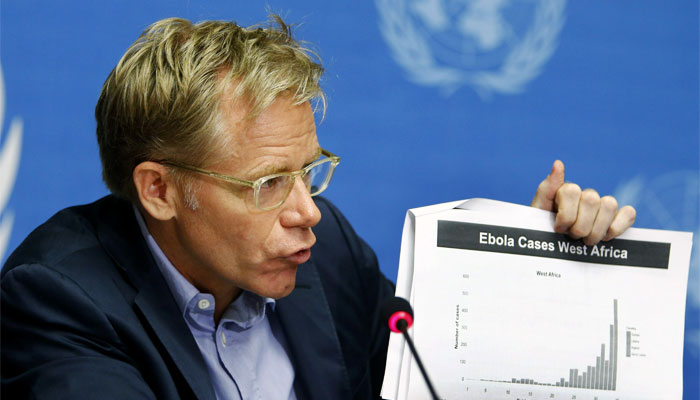World Health Organization (WHO) Assistant Director General Bruce Aylward holds up a graph charting the number of cases of Ebola in West Africa, during a press briefing on WHO's strategy to combat Ebola, at the United Nations headquarters in Geneva Reuters
AFP
Ebola-hit nations met for crisis talks on Thursday as the death toll topped 1,500 and the World Health Organization warned that the number of cases could exceed 20,000 before the outbreak is stemmed.
Nigeria announced that the virus had reached its oil-producing hub, dashing hopes that the country had successfully contained it to its biggest city, Lagos.
Hopes were raised meanwhile of a vaccine for the haemmorhagic fever after British medical charity the Wellcome Trust and pharmaceuticals giant GlaxoSmithKline said safety trials on a new drug could begin as soon as next month.
But new figures from the WHO showed the scale of the crisis. It said it was working on an assumption that it would take six to nine months to bring the epidemic under control, by which time the number of infections could have passed 20,000.
"That's not saying we expect 20,000, that's not saying we would accept, more importantly, 20,000 cases," Bruce Aylward, the WHO's head of emergency programmes, told reporters in Geneva.
"But we have got to have a system that is robust enough to deal with ... a very bad case scenario."
As of August 26, 1,552 people had been confirmed dead from Ebola in four countries -- Sierra Leone, Liberia, Guinea and Nigeria -- while 3,062 had been infected.
But Aylward warned that the actual caseload could be "two to four times higher than the number of cases you see reported."

